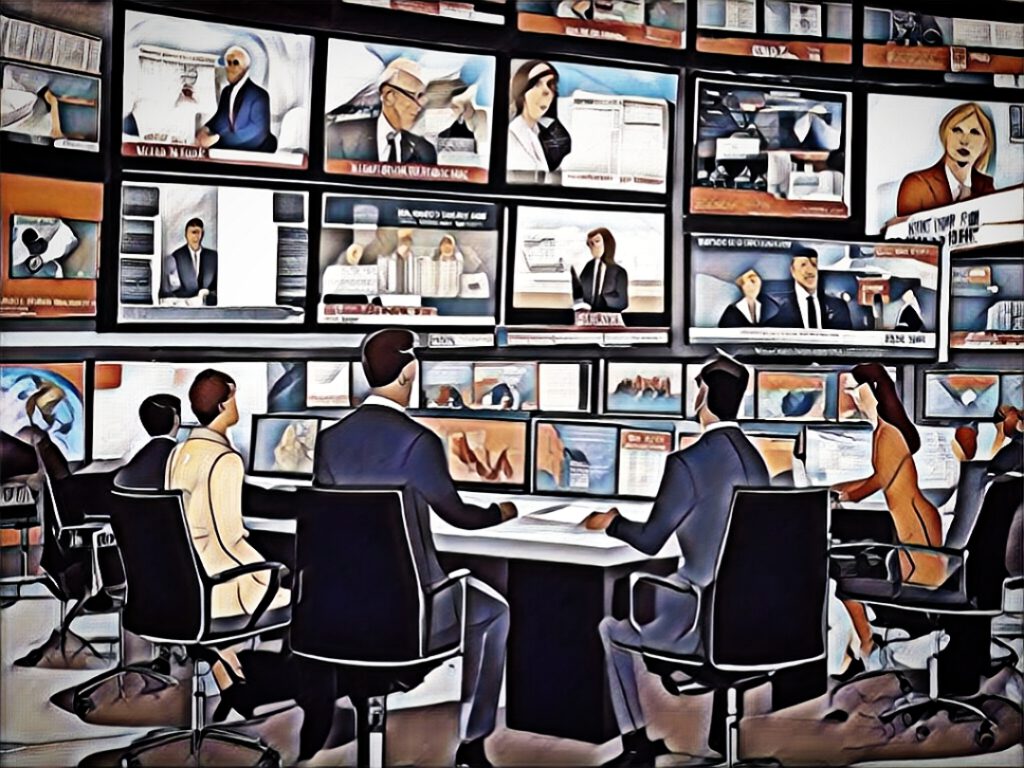Compulsory broadcasting fees are used to produce high-quality television and radio content. This includes news, insightful documentaries, educational content and a wide range of entertainment formats. Public broadcasters are obliged to ensure balanced reporting and to adequately represent minorities and cultural issues. This promotes media diversity and access to information for all parts of society.
A particularly important aspect is the financing of investigative journalism, which can work with the budget provided, in principle, independently of other commercial interests. The broadcasting fees also support the technical operation of the broadcasters, including the infrastructure for broadcasting, digital transformation and the maintenance of broadcasting equipment. Programs to strengthen media literacy should aim to enable the audience to critically engage with the everyday flood of information.
Broadcasting fees in a country comparison
In Germany, every household pays a monthly fee via GEZ to finance public broadcasting, regardless of whether they actually use the radio programs and TV channels or not. Exceptions are recipients of social benefits who are temporarily exempt from paying fees due to their financial difficulties. The Télévision publique contribution of our European neighbors has been similarly controversial for years in terms of its obligation. French households are also obliged to pay a fee to the public broadcasters there.
In the United Kingdom there is such a system with the BBC and in the age of streaming this no longer means that a household has to own a traditional television. Some Scandinavian countries such as Sweden, Finland and Denmark collect their broadcasting fees directly through income tax. Sveriges Television, Yleisradio and Danmarks Radio, for example, are financed from this. In Canada, the CBC is also financed through tax revenue. US broadcasters such as PBS and NPR, on the other hand, are financed through private donations, grants and government funds, so they do not charge users any fees.

The basis of a pluralistic society
If broadcasting fees were abolished in Germany, ARD and ZDF, among others, would lose the essential financial income they need to produce content and provide news and information. Neutral journalism should not be dependent on advertising revenue or commercial interests. Without sufficient budgets, there could therefore be a drastic reduction in the range of programs, which would certainly affect the diversity and quality of the programs.
Public broadcasters play an important role in local reporting, which normally receives little to no attention from private media. There could be gaps in information in various regions of Germany. With the steady increase in fake news and disinformation, there is also a growing risk that people will increasingly rely on social networks, where the quality and accuracy of information unfortunately varies greatly.
Differences to private broadcasters
Private broadcasters such as RTL, ProSieben or Sat.1 are naturally guided by economic interests and therefore prefer content that promises the highest possible ratings. The range is increasingly focused on entertainment, reality TV and lifestyle programs. Content that is easy to consume. The broadcasters often use a dynamic approach and focus on the interests of the mostly young viewers, which is why they can ultimately do more with the program offerings.
However, access to content from private broadcasters is more dependent on advertising, which logically influences the way the programs are designed. Public broadcasters, on the other hand, have a different responsibility for the interests of society. They attach great importance to journalistic standards and comprehensive reporting from different perspectives, while their counterparts in the media landscape prefer sensational stories. Perception and use depend on individual preferences.

